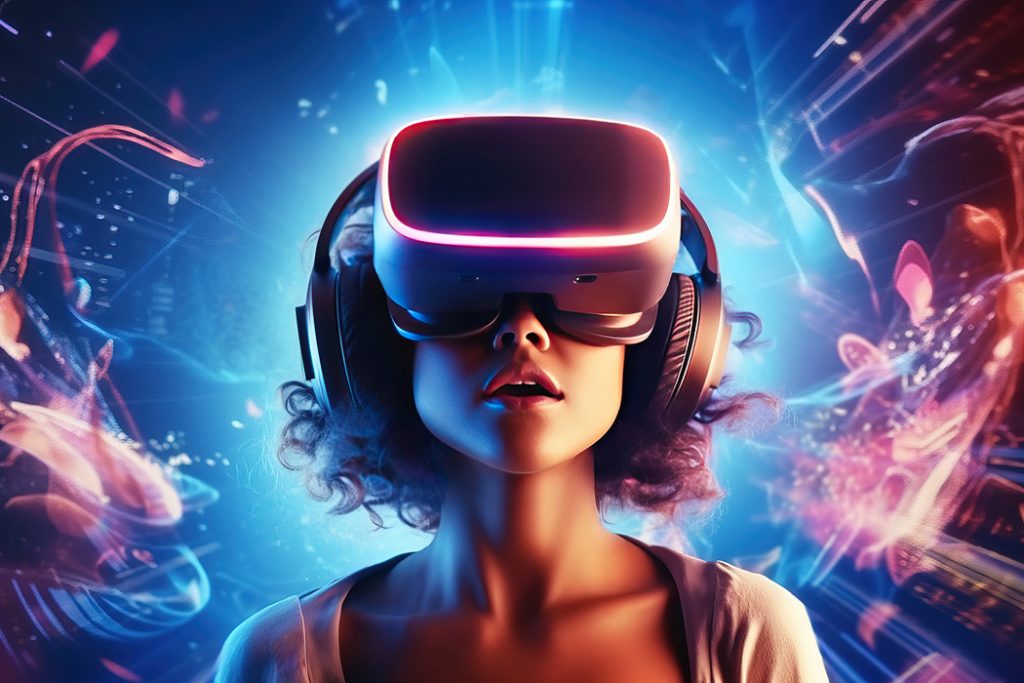Already last year, generative artificial intelligence (GAI) was the star of the Consumer Electronics Show (CES) in Las Vegas, just two months after the launch of ChatGPT by OpenAI. This year, the trend is confirmed at this new edition of the trade show: AI will be increasingly used in sectors such as health, finance, logistics, and education, thereby transforming the way these industries operate.
The Industry Giants highlight the GAI:
Nvidia, renowned for its contributions to large language models (LLMs), has unveiled a hybrid solution combining the power of its graphics processing units (GPUs) with cloud computing. This approach meets the growing demand for GAI and extends to sectors such as 3D modeling and video game. Intel, its direct competitor, announces a new generation of processors focused on GAI and expresses its commitment to integrating GAI into future automotive fleets.
At the event, Volkswagen announced the integration of ChatGPT into its vehicles. LG, on the other hand, plans to infuse its household appliances with GAI to enable them to provide verbal guidance.
Industrial Metaverse: How Siemens Aims to Shape the Future
Among the major industry players present, Siemens unveiled significant advancements aimed at creating an industrial metaverse, merging the physical and digital worlds for innovative collaboration through artificial intelligence (AI). Siemens CEO, Roland Busch, emphasized the opportunities presented by this metaverse, allowing individuals to collaborate in real-time to address challenges in the physical world.
One of the key partnerships announced is with Sony, focusing on the development of immersive engineering. Siemens and Sony are collaborating on a solution called ‘NX Immersive Designer,’ scheduled for release in 2024. This innovative solution combines Siemens’ NX software with Sony’s new spatial content creation system, including an extended reality (XR) headset. This XR technology provides a virtual and augmented experience with high-quality 4K OLED micro-displays and controllers for intuitive interaction with 3D objects. The demonstration shows how engineers at Red Bull Racing can overcome traditional constraints by immersing themselves in the industrial metaverse.
At the same time, Siemens is strengthening its collaboration with Amazon Web Services (AWS) to facilitate the creation and deployment of generative AI applications. By integrating Amazon Bedrock into Mendix (Siemens Xcelerator’s low-code platform), customers can easily select and integrate generative AI models without requiring specialized programming skills. This collaboration streamlines the development of intelligent applications, enhancing productivity by simplifying tasks such as machine documentation search and suggesting equipment adjustments. Generative AI provides a user-friendly interface for interacting with information, thereby accelerating the development process while ensuring security and confidentiality in data handling.
In summary, Siemens is actively committed to shaping the future through key partnerships and technological advancements, aiming to realize the concept of the industrial metaverse through immersive engineering and generative AI solutions. The CES 2024 highlighted the growing appetite for GAI, suggesting that this technology is on track to become the standard for all economic players. This wave of innovation recalls the advent of the web in the late 1990s, marking a major turning point in the global technological landscape. Stay tuned for these exciting developments, as the future of learning has never been more promising.

